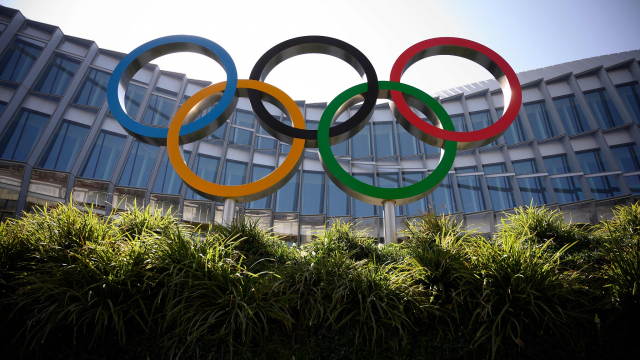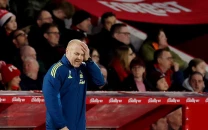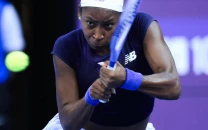Brisbane ready to 'gamble' on 2032 Olympics
Australian city appears all but certain to be anointed 2032 hosts when the IOC holds a vote in Tokyo

Recent Olympics have been wracked by controversy, cost blowouts and coronavirus chaos but the residents of Brisbane, strongly tipped to host the 2032 Games, look ready to welcome the event with open arms.
The sun-drenched Australian city appears all but certain to be anointed 2032 hosts on Wednesday when the International Olympic Committee holds a vote in Tokyo ahead of the delayed 2020 Games.
In other cities, a bid to host an event of such magnitude might prompt demonstrations, or at the very least vigorous public debate. Yet residents of Brisbane have greeted the news with enthusiasm.
"The city is gorgeous, the people are beautiful. And it would be lovely to get something like this happening in the city," Marium Ammar, who moved to Brisbane from Pakistan seven years ago, told AFP.
Qatar had also been in the running to host the 2032 Olympics and there was a long-shot joint bid between South and North Korea.
But being wealthy and sports-mad puts Australia in poll position, according to Judith Mair, a tourism and events expert at the University of Queensland.
"Australia's in a very fortunate position of being able to afford to stage one of these big events," she told AFP.
"There are many countries around the world that might perhaps like to but actually are not in a financial position to be able to do so."
Australia has already hosted the Olympics twice, in Melbourne in 1956 and Sydney in 2000, widely considered one of the most successful Games in recent history.
Home to about 2.3 million people and bookended by shimmering coastal sands, Brisbane is seen as more laid-back and less cosmopolitan than Australia's sprawling southern cities.
Venues would be spread across Brisbane and nearby towns in Queensland state, including the Gold Coast which hosted the 2018 Commonwealth Games.
There are hopes the Olympics would boost Brisbane's international profile, making it more attractive to tourists who tend to use it as a jumping-off point for attractions like the Great Barrier Reef.
"I travelled the world and they say, 'Where's Brisbane?' And you have to get out the map and show them it's an hour north by plane of Sydney," said Queensland Olympic Council president Natalie Cook.
"That's going to change. And that is so exciting."
Games organisers trialled a new dialogue-based bid system for 2032 after cities shied away from the previous competitive process, wary of soaring costs and being lumbered with white elephant stadiums.
The so-called "New Norm" reforms unveiled in 2018 also allow for the use of existing venues, including smaller-capacity stadiums, as well as temporary infrastructure.
With about 85 percent of venues already built in and around Brisbane, Australia is hoping these changes will keep costs down. The city projects an operating budget of Aus$4.5 billion (US$3.4 billion) -- compared to US$15.4 billion for the pandemic-delayed Tokyo Games.
The IOC is chipping in Aus$2.5 billion, and with ticket sales and sponsorship expected to cover the rest, Australian Olympic Committee president John Coates has predicted the event would break even.
Millicent Kennelly, a senior lecturer in tourism and sport at Griffith University, said rosy economic projections should be "taken with a grain of salt" given the history of Olympic events failing to stay on budget.
"I think there's a degree of risk associated with taking on an event of that scale so far in advance," she added.
"There's been a huge amount of uncertainty globally for quite some time, financially with (issues like) Covid, climate change. So it is a gamble in that respect."
Brisbane's bid is being championed by centre-left Queensland state Premier Annastacia Palaszczuk and has support from across Australia's political divide, including from the conservative federal government.
No public polling has been released but officials say community engagement has been positive, and a feasibility study by consultants KPMG estimates the event could bring Aus$17.61 billion in economic and social benefits to Australia.
Brisbane Lord Mayor Adrian Schrinner, who has travelled to Tokyo to make a final pitch to the IOC, said Wednesday's vote marked a "crucial turning point in the city's history".
"This is going to be a pivotal moment for Brisbane and Queensland. This is a moment that people will remember," he said.
Resident Louise Corrigan, 46, said her only potential concern would be if younger generations were left saddled with debt, but she "absolutely" supported a well-budgeted Olympics in Brisbane.
"I can't wait to attend," she told AFP. "I just think it's a once-in-a-lifetime opportunity."



















COMMENTS
Comments are moderated and generally will be posted if they are on-topic and not abusive.
For more information, please see our Comments FAQ